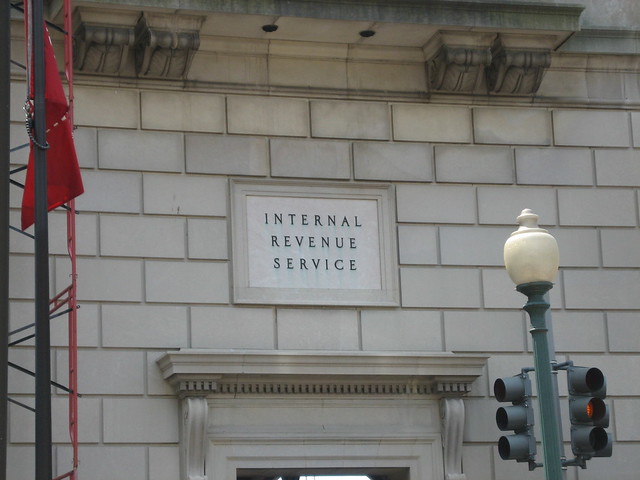
The Internal Revenue Service (IRS) has a history of harassing law-abiding taxpayers. Congress sought to address this through legislation in 1998, but problems have persisted.
More recently, the IRS, working with the Department of Justice, has increasingly turned to “injunction actions,” as a tool to go after taxpayers as noted in a recent report by Tax Notes.
The IRS has authority to launch an injunction action against a taxpayer under U.S. Code Section 7402(a). They are typically launched under one of two circumstances: cases involving tax preparers and cases involving suspected tax shelters. In recent years, the IRS has also used Section 7402 to seek disgorgement against taxpayers, which requires the defendant to turn over all money that they have made in conduct associated with the injunction claim.
Instances of disgorgement (and of Section 7402 in general) have skyrocketed in recent years – since 2015 there have been over 40 cases involving disgorgement, while there were just five between 1954 and 2014.
The agency’s increasingly aggressive use of Section 7402 lawsuits violates the pro-taxpayer reforms passed two decades ago. Section 7402 was little used until passage of the IRS Restructuring and Reform Act of 1998 (RRA), a landmark law which created important protections for taxpayers.
RRA was enacted with several pro-taxpayer provisions and curbed the IRS’ enforcement authority, created the Treasury Inspector General for Tax Administration, an independent watchdog office, and codified the Taxpayer Bill of Rights, a document that the IRS must send every taxpayer who faces an enforcement action.
The Taxpayer Bill of Rights guarantees a basic level of service to American taxpayers. For instance, taxpayers are guaranteed the right to be informed, the right to privacy, the right to challenge the IRS, and the right to not pay more money in taxes than you owe.
Section 7402 injunction lawsuits effectively allow the agency to disregard many of these rights. For instance, these lawsuits are searchable on the Justice Department’s website, subjecting taxpayers to public shaming and damaging their reputation.
The IRS has used its broad authority to file injunction suits in complex cases where it is unclear whether taxpayers are at fault. This was the case in United States v. Zak, where the government filed a complaint asking the court to block six defendants from promoting use of the conservation easement deduction. Without alleging any specific facts, the agency made a blanket claim that defendants impermissibly inflated the value of the deduction by overstating the value of donated easements. The government also seeks to confiscate via disgorgement any income the defendants made from facilitating conservation easement donations.
To be clear, Section 7402 has legitimate uses. For instance, injunctions have been used against tax preparers that have committed clear fraud by claiming false deductions for unwitting taxpayers in an attempt to defraud the Treasury. However, its use should be limited in scope.
Alarmingly, the IRS has been using Section 7402 as an end run around enshrined taxpayer protections and using this provision to subject taxpayers to extensive litigation. Given the increasing use of this provision, it may be necessary for Congress to step in and reaffirm the congressional intent of RRA by updating the law to stop IRS abuse over taxpayers.

